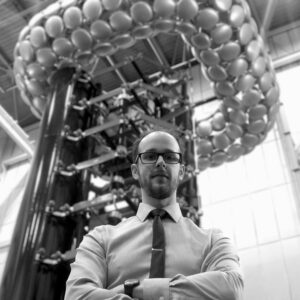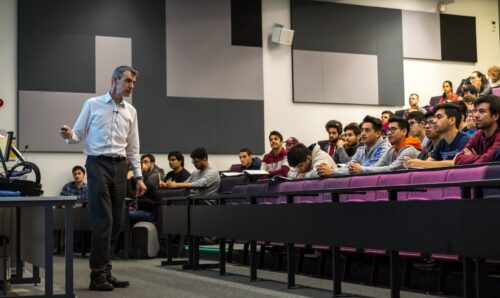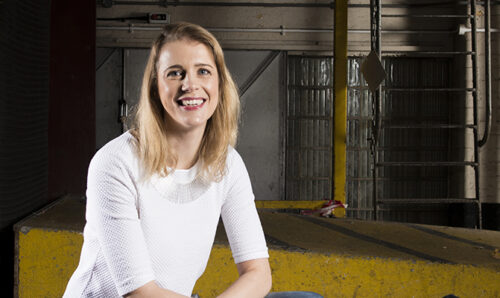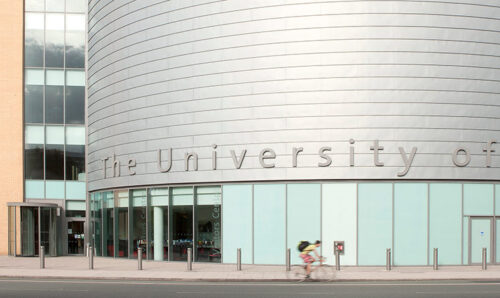Meet a EEE Tutor – Dr Robin Preece
Meet the Department 17 January 2018
Dr Robin Preece teaches the Third Year Power Systems Analysis unit and the Fourth Year Analysis of Electrical Power and Energy unit for the Electrical and Electronic Engineering course. Robin also supervises Third and Fourth Year projects, so if you choose to study the Electrical and Electronic Engineering stream, you will meet Robin very soon!
Please can you describe your research, for the layman, in ten sentences or less?
My research is about how power systems will operate in the future – and trying to make sure that everyone has electricity when they need it. Green energy sources like wind turbines and solar panels are great for the environment, but they do make it a bit trickier to keep the system up and running.
Keeping everything balanced and happy is a bit like plate-spinning – the problem is that adding more green energy is a bit like replacing the plate with one made of paper, and it’s obviously harder to keep it balanced. So I look at ways of quickly responding and adapting to changing conditions to make sure the paper plate stays balanced and everyone’s lights stay on. They won’t let me play with the real power system, so this is mainly done with lots of computer simulations.
How can your research benefit the public?
If we do it right, we’ll be able to transition away from dirty energy sources and get all our power from green sources. It’s not just a case of building all the solar panels or turbines. Right now, even if we had enough to generate all of our electricity, we wouldn’t actually be able to use them all and operate the system in that way (we couldn’t reliably keep the plate balanced). So with some more research, we might be able to operate a truly green electricity system in the future.
How did you first become interested in your research area?
During my undergraduate degree (Electrical and Electronic Engineering) I was sponsored by an electricity company and I began to see more of the challenges facing the sector. I had the opportunity to study for a PhD and decided to do that rather than getting a ‘real’ job. After that, I was hooked on doing research and really enjoy how challenging it is.
Who or what first inspired your interest in Science and Engineering?
I was always pretty good at maths and physics and knew I wanted to do something with them, but was fairly sure I didn’t want to do maths or physics in their pure forms. No offence meant, but I wanted to do something a bit more useful – so engineering seemed like a good fit. Earlier than that, I think I’d always liked the fact that things were usually right or wrong in science and not as subjective as some other subjects. But I really like the creativity in engineering. It’s all about thinking of new solutions to problems and you have to be creative to do that – you just have to obey the laws of physics too.
Can you tell us a little about your other interests?
I like to travel and working at the University gives me good opportunities to see new places, so I really appreciate that. My main interest is probably food and I enjoy sampling the best of what Manchester has to offer as well as cooking unnecessarily large weekend feasts.
What do you get up to in your spare time?
In my spare time I’m usually eating or cooking something to eat, or binge-watching Netflix. I’ve been in Manchester for more than ten years now so have some really good friends here and we often meet up for food. It’s mainly about food.
How does being based here in Manchester help your work and research?
As well as the abundance of excellent food options in the city (providing fuel for my research) the University is a world leader in my research area. It was actually the first place you could study electrical power system engineering as a subject (way before I was born) and has some of the best academics in this area. Wherever I go to talk about my work, people have heard of the University of Manchester and that has really helped to build my reputation.






Leave a Reply